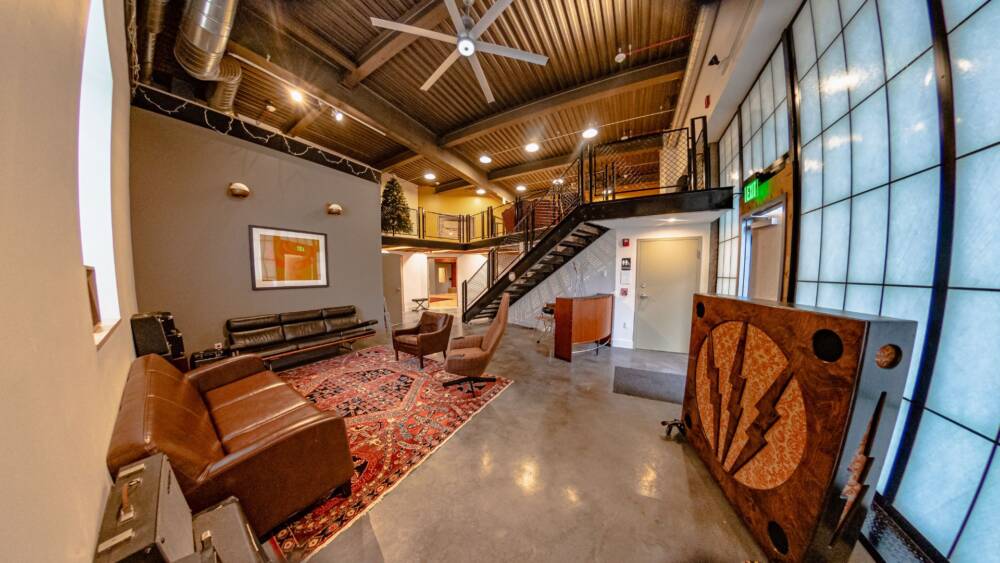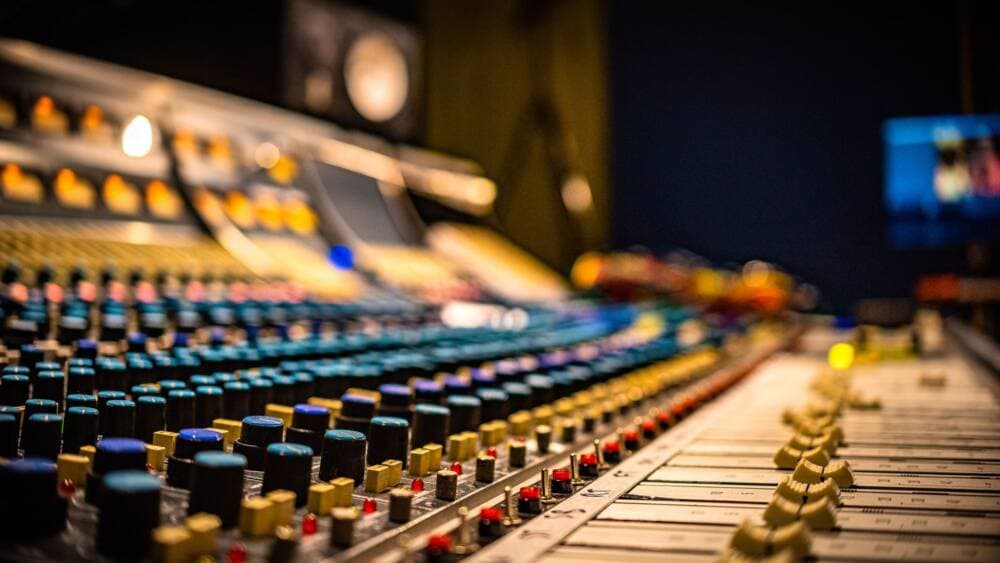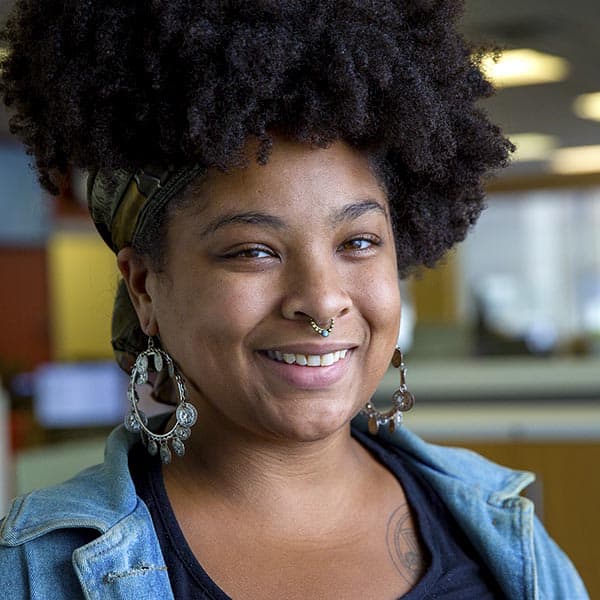Advertisement
Q Division Studios reopens 18 months after closing

Around 18 months ago, Q Division Studios had to leave their previous location in Davis Square after 20 years of calling the space home. Co-founder and owner Jon Lupfer knew it was coming. "The building sold in 2015 and we were able to renew our lease for another five, six years," he says. "Even before that, the rent had gone up quite a lot and it was just a very hard place to be."
Before the space in Davis Square, Q Division Studios first opened in 1986 on Albany Street in Boston. Over the years, the studio became a second home for musicians and even hosted legendary artists like Yo-Yo Ma, Wiz Khalifa and the Pixies. But things changed when co-founder and co-owner Mike Denneen passed away in 2018. Then, COVID-19 hit and Q Division closed for 2020.
"When Mike died, I don't know that at that particular point in time, we even knew that we would keep going," says Lupfer. "Then the pandemic ... there was something about that in particular that almost got me like, 'This can't be the way we go out.' It just felt more than ever, what we were offering was what was needed."
By the time Q Division had to relocate from its Davis Square location, Lupfer, head engineer Rafi Sofer and studio manager Ed Valauskas had already secured another space. Despite the circumstances of having to find a new studio in an increasingly competitive real estate market, Lupfer was optimistic about the move. "By the time we finally did get out, I was kind of happy. I mean, we filled two dumpsters with stuff!" The move gave Lupfer and others at Q Division an excuse to go through 20 years of that accumulated "stuff" — old equipment, papers and other miscellaneous items they wouldn't need in their new space.

Now, after months of construction, Q Division Studios is open at its new location in Cambridge, less than a mile away from the old space in Davis Square. Studio A, one of two studios in the space, is currently open to book as the Q Division team finishes up construction on Studio B. At the heart of Studio A is a Neve 8068 MKI.
"We've had the NEVE 8068, probably for 30 years," says Lupfer. "It's from 1977 and it came from Brazil." The break between leaving their old studio and moving into their new one gave the team time to dedicate to fully refurbishing the console. "It's actually sort of lucky in a way that. Repairing them is not an easy task because many of the parts are not available."

Beyond the NEVE 8068, Studio A boasts a Yamaha baby grand piano, one of many pieces of vintage instruments and equipment, including guitars, keyboards and amps, that Q Division has onsite for use. "We don't want to be a museum of recording technology. We're not trying to stop time," Lupfer emphasizes. "We're trying to incorporate what we consider the best of both modern and vintage technology."
Constructing the new studio space gave the Q Division team time to consider the inherently important, but perhaps overlooked aspects of music-making that they weren't able to address before. "We worked really hard on the sight lines so that the musicians are acoustically isolated but still be able to see each other and perform together," says Lupfer. They also built in sight lines between the control room and the tracking room to mitigate the feeling of separation when those two areas are completely closed off.
Another aspect Q Division worked on was lounge space. "Our first studio was all technical room and no client space," Lupfer recalls. "And over time, you realize, when you're in the studio, a lot of your time is not necessarily actually in the tracking room ... I think there was a lot of attention paid to those places."
Some may call the state of music in the Greater Boston area dire or tenuous, due to the closure of several staple venues and studios, including Great Scott and the Sound Museum. "You get this weird situation where art is really the driver that makes people want to live in cities," Lupfer says. "All these young people want to come in because there's this cool stuff and then this cool stuff has to go somewhere else ... because it's pushed out."
But Lupfer remains optimistic about where the local music landscape is headed. "It's a tricky business in this time. It takes people working hard to keep what's there and be creative about how you find new spaces. It's not an easy problem to solve. But there's a lot of people focused on this and I'm happy about that."
For right now, he's just ecstatic about welcoming musicians to come do what they love most at the new studio space. "There's a lot of musical inspiration, of people working off one another in a space. There's just a lot of joy."

